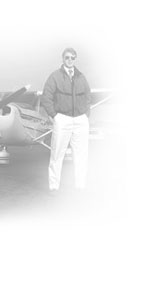General aviation to rescue in Texas
August 28, 2012, 01:07 pm
When the mayor of Dallas declared a state of emergency to combat the spread of the West Nile virus infections, the general aviation community was there to help.
The Centers for Disease Control and Prevention reported that West Nile is the worst it has been since the virus was first reported in the United States.
“Thus far in 2012, 43 states have reported West Nile virus infections in people, birds or mosquitoes,” said the CDC in an August 14 online update. “A total of 693 cases of West Nile virus disease in people, including 26 deaths, have been reported to CDC.”
The CDC update continued by saying that more than 80 percent of the cases occurred in six states: Texas, Mississippi, Louisiana, Oklahoma, South Dakota and California. In addition, the report said that Texas accounts for nearly half of all the cases.
"We are on track to have the worst year ever for West Nile virus in Texas," said Christine Mann, a spokeswoman for the Texas health department.
Mann added that the number of West Nile cases triple the amount of the previous high reached in 2003. Although concrete reasons are unclear, she believes this year's warmer winter followed by a rainier spring contributed to the high mosquito population.
In response to the state of emergency, Dynamic Aviation of Bridgewater sent four King Air 90 turboprops to Dallas for 10 days of aerial missions to combat the problem. The planes, two of which are from Bridgewater and two others that were deployed from Louisiana and Wyoming, will take off at Dallas Executive Airport, where they will be conducting spraying missions during the night. The company has 30 years of spraying pesticides for mosquito control and is performing the missions under a prearranged contingency contract, Michael Stoltzfus, president of Dynamic Aviation, told the Aircraft Owners and Pilots Association.
Two pilots per plane, equipped with night-vision goggles, will fly down to a hard deck of 300 feet above the ground level to conduct nocturnal application flights. The flights are being done at night due to the high-risk storm weather during the afternoons in the Dallas area. The crew is known as a pesticide duet because one pilot flies the plane while the other fixes his or her eyes outside at all times.
Pilots in the general aviation community helping with pesticide or flying for recreation should consider pilot life insurance.
Are you covered? Are you overpaying? Find out! Get a Quote Now!
| 


